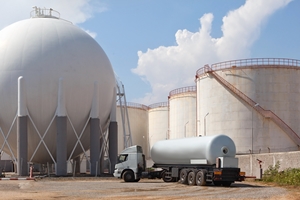More than 500 industry professionals from across the globe shared their thoughts on the future of recruitment within the oil and gas sector, and the results are promising for those considering apprenticeships in Gladstone and other areas with oil and gas resources.
Half of the survey respondents forecast both permanent and contract hiring activity will increase in 2014, and 58 per cent expect salaries and rates to climb.
Additionally, 44 per cent believe the impending skills gap is the biggest threat affecting growth in the oil and gas industry this year. Economic instability (28 per cent), capital costs (9 per cent) and immigration issues (9 per cent) were also identified as major challenges for the sector.
Engineering professionals are under the highest demand by far, with 58 per cent of respondents reporting difficulties filling engineering roles in their organisations. This was followed by project management (22 per cent) and drilling (9 per cent).
Overall, 80 per cent of the survey participants report the skills gap has already caused trouble in recruitment in the oil and gas industry over the past 12 months.
Locally, Australasian respondents have identified Australia’s shale potential as a factor that should drive significant demand for talent. In particular, organisations in Queensland will be seeking drilling, exploration and geoscience professionals in 2014-15.
Of the survey participants in this area, 40.1 per cent believe the skills shortage is the biggest threat to the industry. Interestingly, this is followed by 25.9 per cent who are concerned about high labour costs.
A rise in permanent recruitment is expected by 36.8 per cent, while 42.6 per cent forecast contractor employment will increase. Concurrently, the Australian Workforce and Productivity Agency (AWPA) expects there will be a 57 per cent increase in oil and gas operational jobs in Australia by 2018, as major projects shift from construction to production.
This predicted rise in employment should also help boost apprenticeships in Queensland, as employers look to take on workers trained in specific skills.
The shift from construction to operations expected to occur throughout 2015-16 also offers unique opportunities for employers and employees. Employees currently working in construction jobs may wish to reskill in production roles to continue working in the oil and gas industry.
Employers can benefit from upskilling staff by offering apprenticeships and traineeships. This could help reduce recruitment costs and may reduce the impact of the forecast skills gap.
By Leanne de Toerkenczy, Public Relations Coordinator

